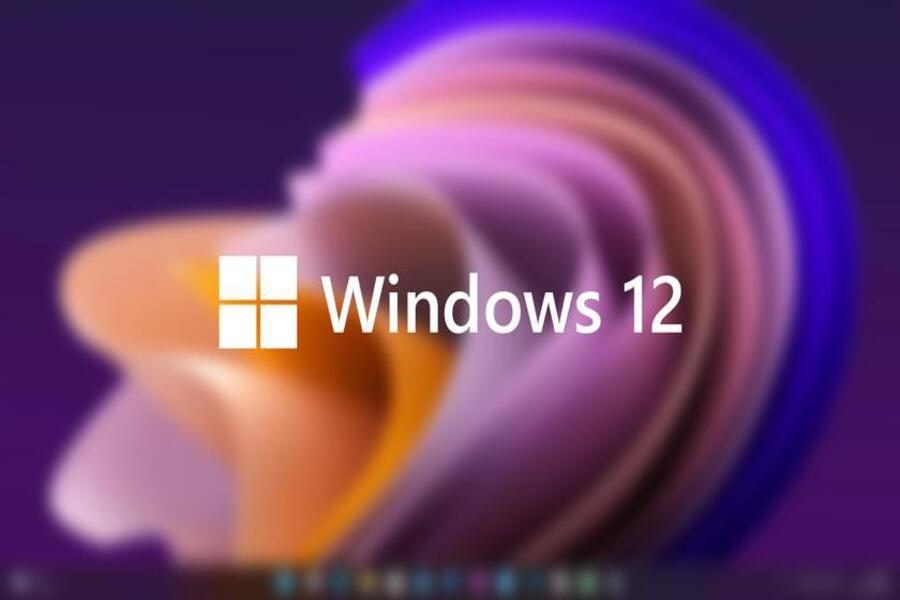Both Intel and Microsoft are preparing the unknown Windows 12 operating system. Hardware leaker @leaf hobbyist, notorious for publishing full specifications of Intel’s Xeon chips ahead of their release, has leaked information about Intel’s Meteor Lake desktop platform. According to Intel’s internal communications, its next-generation CPUs will support Windows 12.
According to Video Cards, Meteor Lake is expected to have 20 PCIe Gen5 lanes and Windows 12 functionality. The tweet has since been deleted. Intel declined to comment on the disclosure despite our request. Microsoft also declined to comment on rumors that Intel would support Windows 12.
Microsoft has yet to reveal its plans for Windows 12, but there are already hints that future versions of Windows may feature AI-powered functionality. “As we design future versions of Windows, we will consider where AI should play a natural role in terms of the user experience,” said Yusuf Mehdi.
Mehdi was highlighting the latest Windows 11 upgrade that adds the new AI-powered Bing to the taskbar. This version now adds AI-powered content recommendations for business users to the Start menu. Microsoft is also apparently developing AI-powered intelligent snapping capabilities for Windows 11.
Mehdi’s comment follows Windows chief Panos Panay’s statement at CES earlier this year that “AI will revolutionize how you do everything on Windows.” Microsoft’s Surface team has also hinted at the potential impact of AI on PC usage. According to Steven Bathiche, AI will “potentially have a huge impact on how you use your computer and how it will fundamentally evolve in terms of what it looks like.”
If Microsoft plans to include AI more widely in future versions of Windows, it will need to work with hardware partners such as Intel and AMD to develop AI-capable chips. This may explain why Intel is reportedly already discussing Windows 12 internally.
According to the company, AMD’s Ryzen 7000 mobile processors are the first x86 chips with a dedicated AI engine that can support Microsoft’s Windows Studio Effects. Often, some functions, such as background noise removal and eye contact, are only accessible with a specialized neural processing unit (NPU) on handheld gear. So, it’s clear that AMD and Microsoft are building the foundation for additional AI-powered functionality in regular Windows laptops.
However, Intel won’t be far behind on the AI front. Meteor Lake, coming later this year or early 2024, is a big move for Intel, as it will be the company’s first “chiplet” design, with CPU cores, integrated graphics, and input/output. There will be independent dice. It will also offer AI capabilities comparable to those introduced by AMD for its Ryzen 7000 mobile CPUs.
Both AMD and Intel are trying to catch up with Apple’s latest M2 chips, which have a dedicated AI chip that can perform 40 percent more operations per second than the M1 chip. Apple uses its Core ML platform to run machine learning models on MacBooks to speed up voice recognition, image processing, and other tasks. All of this is energy efficient because it uses a dedicated NPU instead of a CPU and GPU.
Last year, Microsoft apparently returned to a three-year release cycle for Windows, indicating that the next major edition of Windows could be released in 2024 — perfect timing for the arrival of new processors. With the release of Windows 10 in 2015, Microsoft initially moved away from its three-year tenure and prioritized the concept of Windows as a service. Windows 11 ended the notion that Windows 10 was the “last version of Windows”.
The focus has been on updating Windows 11 much more frequently than the big annual updates that Microsoft promised for the 2021 release of the operating system. This week, the software developer released the latest major Windows 11 update, which includes the addition of AI-powered Bing to the taskbar, widget enhancements, an improved touch mode, a screen recording function and more.

